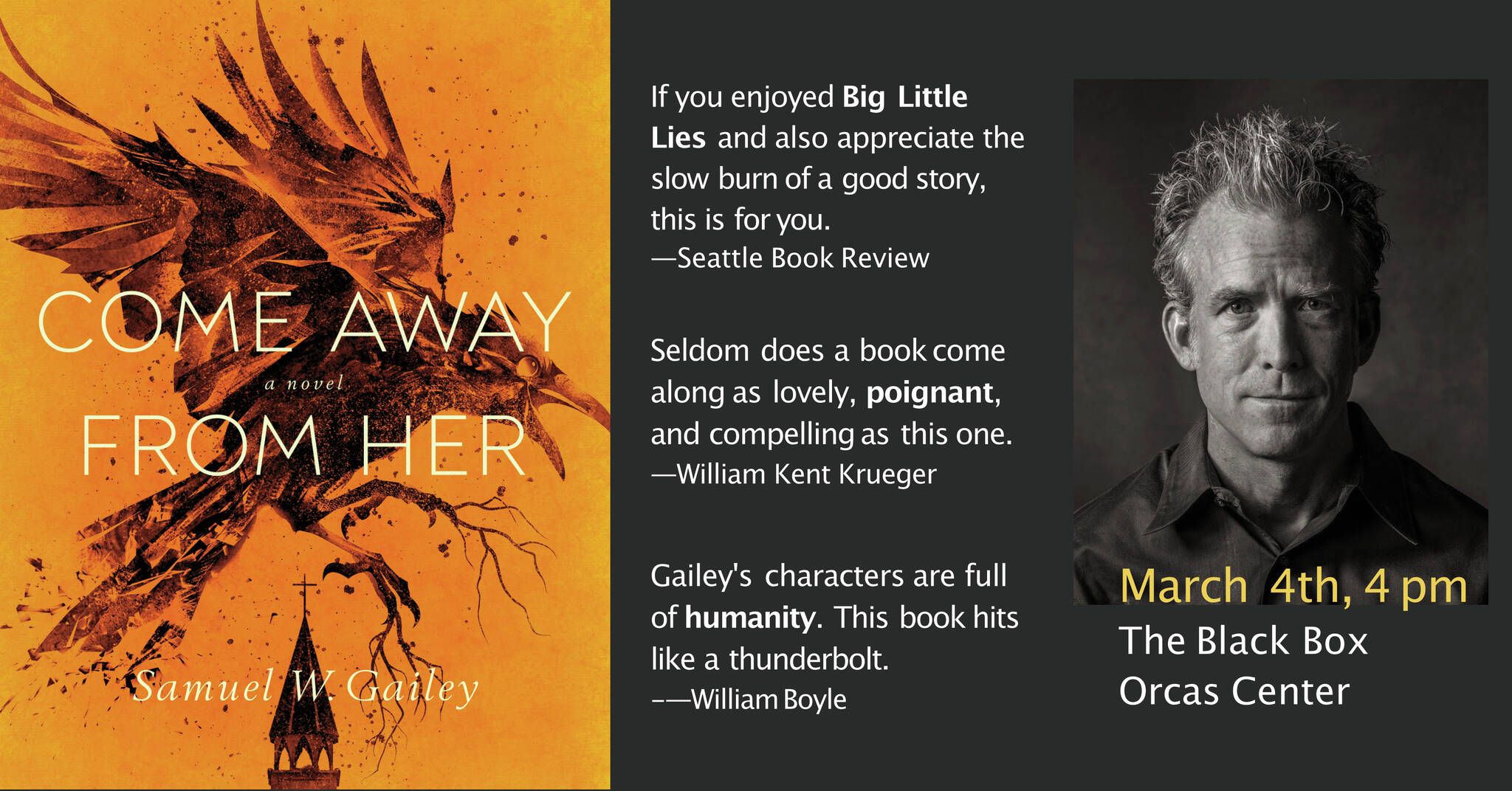Please join us for Community, Crows, and Curios. A live post-read event for “Come Away From Her” the new novel by Samuel W. Gailey. The discussion will include other community members and revolve around the themes of the book, including the power and resilience of community, the damage secrets cause, and grappling with one’s faith. Guests will also get a sneak peek at related work by painters Susan Singleton and Kate Geddes who will show their original artwork series of crows and ravens. There will be an interactive display of curios based on the characters in the novel for readers of the book to enjoy, too.
Written in Gailey’s critically acclaimed style, “Come Away From Her” portrays its characters with compelling nuances, peeling back layer after layer until we discover the truth about a murder and its aftermath in a series of brilliant twists.
Q and A with Samuel W. Gailey:
Why did you choose to write about a pastor struggling with faith and addiction?
I think we all struggle with our various belief systems at one time or another, especially over these last few years. After speaking with real-life pastors, I discovered that many of these men and women also grapple with both their faith and addiction, but the struggle for them is even more complex, with higher stakes. After all, clergy persons have to model absolute faith for their congregation and community for that system to survive. Depending on their community, that can mean hundreds or thousands of people looking to them for spiritual guidance. I found the irony of that compelling.
Why did you choose to make your female protagonist deaf?
Personally, I have always been drawn to silence. I have never perceived silence as a deficit as some people do. At the beginning of the story, I wanted to find a unique way to demonstrate Tess’s loss of power, and how little voice she has in the acts of violence that are committed against her. At the same time, I wanted to take what can be perceived as a weakness or flaw, and show how it actually makes Tess special and empowers her. Before making her deaf and mute, I struggled with her needs versus wants, her backstory, her physicality, and her voice. How she actually spoke and the things she might say. Once I removed her literal voice, she blossomed into a character with grit and tremendous inner strength. Silence became her power.
What part do secrets play in your story?
I was born into a family of alcoholics that attempted to hide their disease with denial and deceit. And amongst my extended family, there were rumors of molestation and incest. I experienced firsthand how these secrets corrupt relationships and can hurt loved ones, even a generation removed. On the other hand, secrets, and the sheer act of keeping them, in some strange way, often keep people going and give them a sense of duty. Protecting a secret can feel like the best thing for everyone. That is, until they just can’t bear the weight of it anymore. Sadly, I believe everyone gets to that point sooner or later.
Several of your characters deal with the trauma of sexual abuse. What compelled you to explore these issues?
Thankfully, the curtain has finally been pulled back, exposing the severity of this epidemic. The #Me Too movement and being a father to a daughter certainly heightened my awareness of these issues. I was staggered to learn that 81% of women have experienced some form of sexual harassment and/or assault in their lifetime. That really stuck with me.
Essentially, everywhere I go—the park, the market, the movie theatre, the bookstore— I am passing victims of abuse. These are our mothers, wives, sisters, daughters, and friends.
It felt unrealistic to create female characters who did not have to deal with the darker issues of abuse due to their gender.



